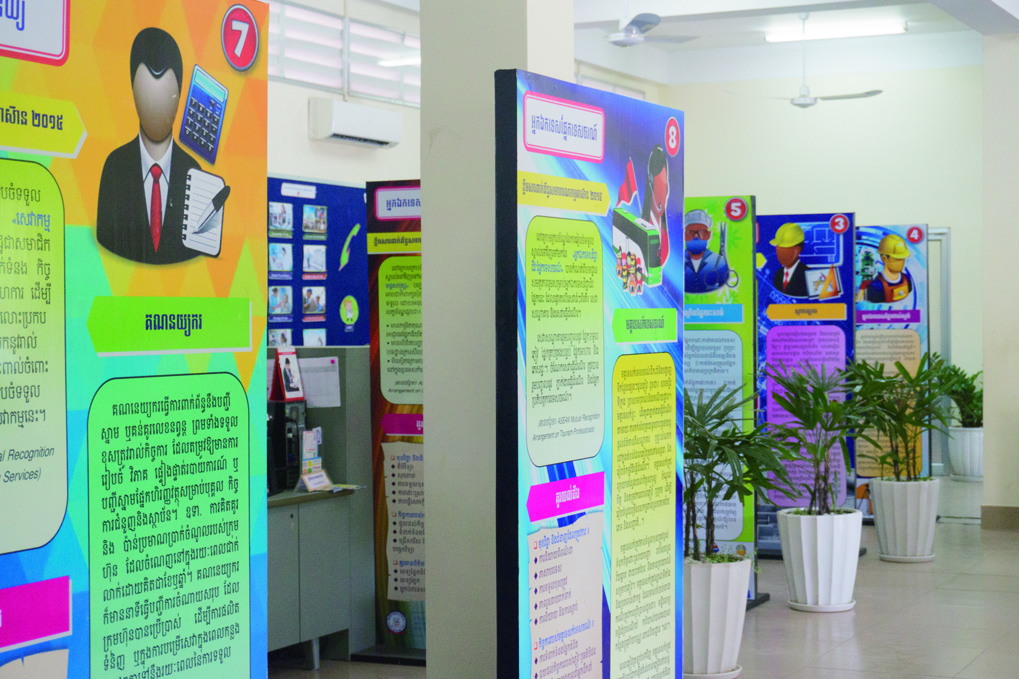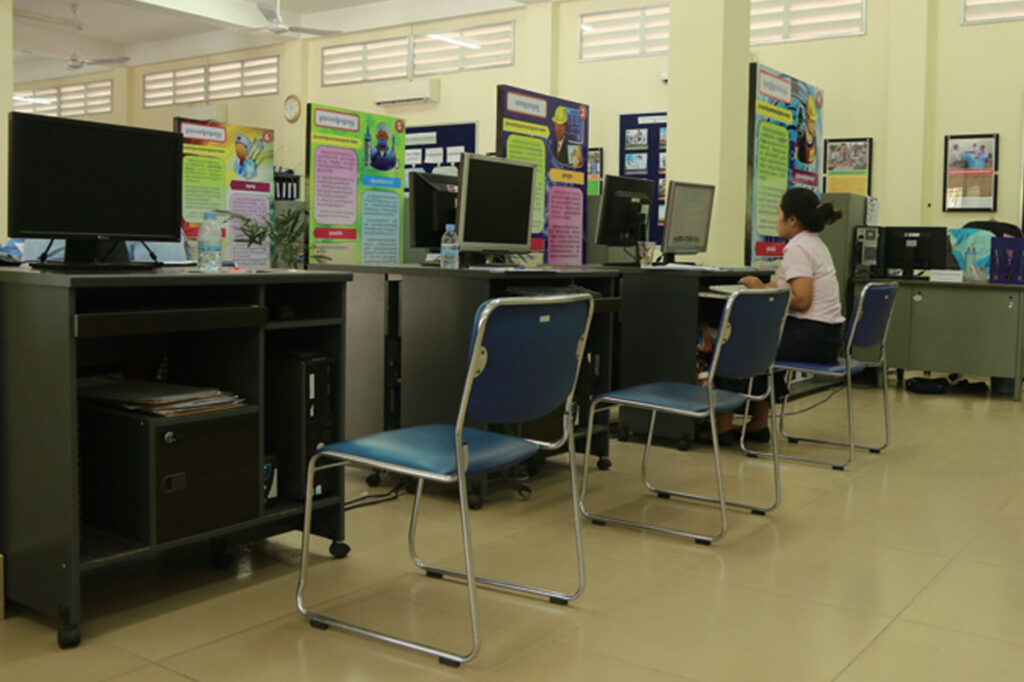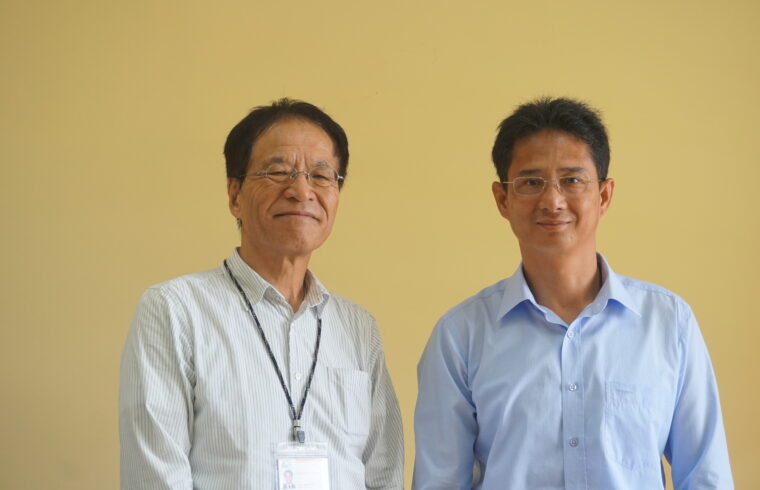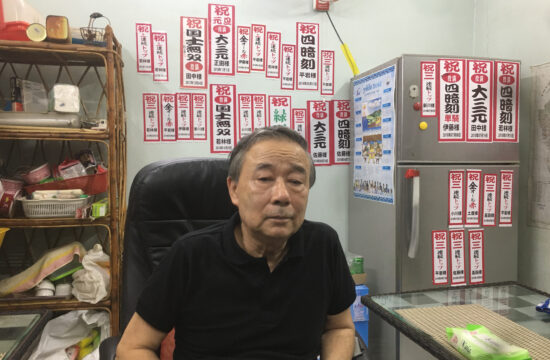National Employment Agency
General Director Mr. Hong Choeun
JICA Senior Volunteer Mr. Nishimura Hiroshi
– First, what kind of institution is NEA?
NEA, National Employment Agency, is a new government institution that was founded in 2009 and started its operations in March 2010. It is responsible for delivering quality employment services and labor market information to job seekers, employers, training providers, policymakers, and the public. It’s close to the “Hellowork” of Japan. Job seekers can find jobs on the ground floor of the job center and undergo soft skills seminars. Employers can examine human resources based on the suitability of skills and qualifications, communication skills, and teamwork that’s necessary for work. High school students can explore their future path through the self-assessment that can identify their values, interest, skills, and personalities. This assessment can help students to choose the major for going to university.
JICA has been supporting a system of development since 2013, and I was sent here last year. Now I work to strengthen the cooperation with Japanese companies.

– How is employment information disseminated?
You can feel free to use it because job searching registration can be done easily on the web (www.nea.gov.kh), as well as at the counter. For responding to labor supply and demand in rural areas, we established eight branches besides Phnom Penh (provinces of Svay Rieng, Takeo, Siem Reap, etc.).
In addition, we provide employment guidance and human resources on regular visits to special economic zones, universities, and human resource development organizations.
We host National Career Fair every year in November. Last year, more than 20,000 people attended.
– How is the NEA itself publicized?
We produce our own television program that’s broadcasted by major TV stations in the country. While the name of NEA has not yet become well known among Japanese companies, we announce it in information magazines and also do company visits. For this year’s National Career Fair, we think more Japanese companies will participate and utilize it as a place that appeals to companies. We have also made an announcement to the Japanese Business Association.
– Has the interest of the Japanese companies increased in the Cambodian labor market?
The image of the Japanese companies is still vague and clearly only a preference among a few people. Of course, there is consciousness among Japanese learners of wanting to find a job in Japanese companies, but they generally make choices based on the type of industry and salaries.

– Private staffing services have increased in these past several years, but what is the strength of the NEA?
The facility uses fees and referral fees are all free because it’s the institution of the country. We also support hosting company briefing sessions, how to write resumes or how to perform well for interviews as well as browsing and searching job placement information at the job center. There are also interview rooms.
Since there are a great many registration numbers of people and cooperation with the local community is strong, it is suitable for searching for human resources for several hundred units such as factory setups. The private sector collects information one by one, but our institution makes full use of the network. In the future, we will increase the registration of employers offering jobs with high skills and want to coexist in peace and prosperity with other companies. In addition, although many of the registered students are studying liberal arts, we will extend our services in science and technology in the future, and we want to achieve matching between science universities, vocational training schools, and Japanese companies. We use the information-gathering power of the NEA, strengthen the dissemination of information to Japanese companies, and aim to function as an institution that can provide high-quality employment to the satisfaction of both job seekers and employers.
– People looking for jobs and looking for human resources in Cambodia at the present tend to rely on referrals from relationship acquaintances, and the high turnover rate is a problem. I hope that the awareness of employment will also improve as the services from the institutions of the country spread and the steps of finding employment change.











